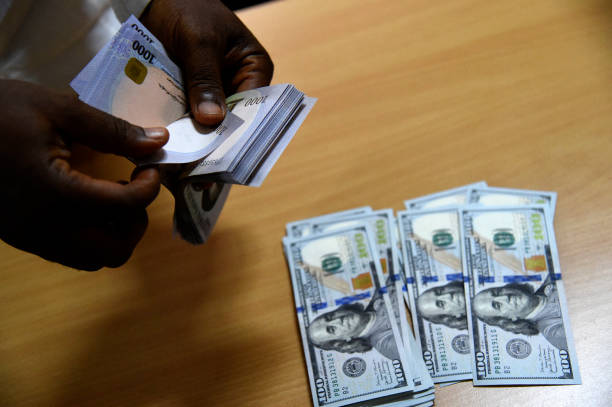For years, Nigeria’s parallel market exchange rate has reflected the general economic decline. This week, though, the naira appreciated against the dollar in a dramatic reversal that has brought cautious relief to traders and entrepreneurs who relied on foreign exchange.
Yet the recent stability in the national currency is the result of a list of reforms ranging from local fintech innovation to regulatory adjustments in the country’s financial industry.
One notable contributor is the expansion of mobile fintech platforms that have amplified open and more secure channels for personal remittances. For instance, Flutterwave, Paystack, and Chipper Cash have facilitated the process through which Nigerians can receive money from their friends and relations abroad.
This ease in cash inflows reduces the demand for informal money changers and provides small business owners with convenient rates. What’s more, receiving money on these platforms has become faster, weaning many Nigerian households from black-market operators.
Recently, the Central Bank of Nigeria resumed direct dollar sales to bureau de change operators. This cautious decision has, no doubt, boosted the supply of the greenback on the market.
Under set guidelines with select operators, the CBN now injects liquidity into the retail forex market, thereby reducing the pressure on the parallel market. This regulatory balancing has restored faith in black-market traders, with ripple effects on currency demand management.
Increased financial literacy
The rise of financial literacy programmes in major business hubs is yet another factor. Local radio programmes as well as NGOs are sparking interest in foreign exchange among small-business owners. They caution audiences against panic buying, which typically leads to a surge in demand for the dollar. As such, audiences learn how to accurately monitor exchange rate patterns.
Similarly, events like the Traders Fair Campaign in Lagos are educating market women and young entrepreneurs about appropriate times to buy forex. This education ensures that they don’t feel panic during times of rapid swings.
Notwithstanding the progress, there are hurdles. The black market continues to thrive due to ongoing mismatches in official forex provision, and a majority of Nigerians remain wary of the banks due to inconsistent policies and widespread fears about the CBN’s regulations.
Inflation pressures from the removal of the longstanding fuel subsidy also pose a threat to the naira’s stability, shaving off the recent gains if left unchecked.
The way forward
Nigeria can make such benefits enduring by further boosting engagement with the diaspora, inducing organised remittances through regulated fintech windows, and making official forex windows more transparent with CBN interventions.
Moreover, accessible forex education and collaborative finance access should suppress speculative demand and protect local firms from exchange rate risks.
The recent uptrend of the naira on the black market is not just a statistical phenomenon. It is a sign of the gradual march towards people-centred financial stability, technology-facilitated transparency, and policy improvement.
Through the amplification of these people-centred solutions, there is a potential for Nigeria to make the shift to a more stable currency regime in which common people, from electronics vendors in Lagos to pepper traders in Kano, can plan for their businesses with more hope and less panic.
Nigeria has experienced recent appreciation of the naira against the dollar, providing hope to traders who rely on foreign exchange. This development is attributed to a series of reforms, including the expansion of mobile fintech platforms like Flutterwave, Paystack, and Chipper Cash, which have improved remittance processes and decreased reliance on informal money changers. The Central Bank of Nigeria has also resumed direct dollar sales to bureau de change operators, increasing the supply of dollars and reducing parallel market pressure. Financial literacy programs and events in major hubs are educating business owners on managing foreign exchange, helping reduce panic buying.
Despite these positive changes, challenges remain, such as the thriving black market due to mismatches in official forex supply and general distrust of banks. Additionally, inflation driven by the removal of a longstanding fuel subsidy poses a risk to the naira's stability. Moving forward, Nigeria aims to enhance engagement with the diaspora for organized remittances, improve transparency of forex windows, and foster financial education to stabilize the currency further. Overall, these initiatives signal a shift towards a more stable financial environment for Nigerian businesses.






